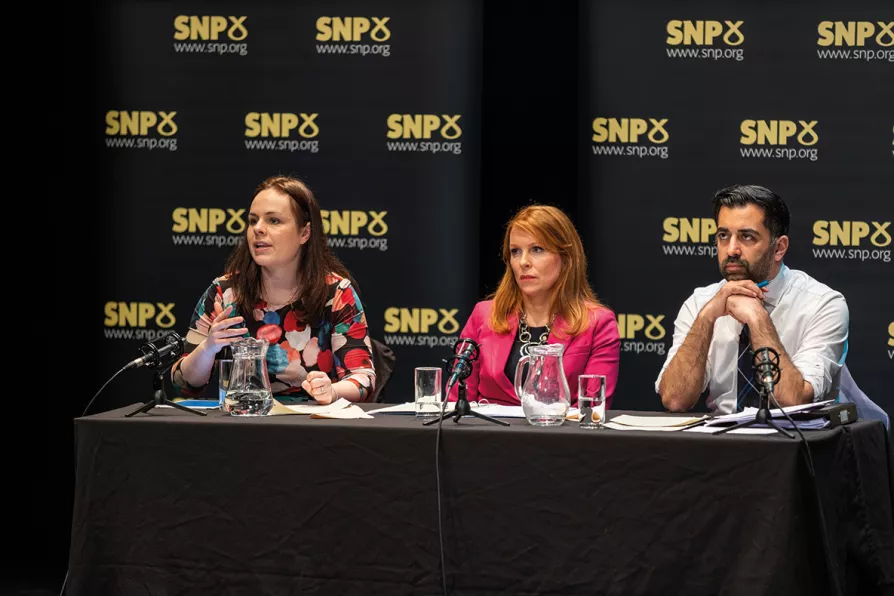This weekend, the NEU holds a special conference to debate changing its approach to organising teaching assistants, which a 2017 TUC agreement forbids. General secretary DANIEL KEBEDE outlines the choices before delegates

 THE CONTENDERS: (left to right) Kate Forbes, Ash Regan and Humza Yousaf taking part in the SNP leadership hustings on March 4
THE CONTENDERS: (left to right) Kate Forbes, Ash Regan and Humza Yousaf taking part in the SNP leadership hustings on March 4
THE commentary on the SNP leadership has often been surreal, not just by the so-called mainstream media, but our political opponents. The idea that Nicola Sturgeon’s resignation means that the game is up and the support for the SNP will automatically fall, remains to be tested.
Certainly, the thinking that SNP voters will fall into the loving arms of the British Labour Party with their muscular, hard-line unionism in Scotland (and curiously, Northern Ireland) is suspect. Indeed, the main priority of British Labour appears to be an all-out crusade against its own left, ensuring left candidates are not selected or are removed from the membership.
Any candidate displaying even a soft position on the constitution, for example, saying that it is perfectly acceptable for there to be a referendum, has a chance of less than zero to be on a ballot paper come election time. Current polling shows that Labour is increasing support overwhelmingly on the backs of Tory switchers, reflecting its own move to the right.

Every Starmer boast about removing asylum-seekers probably wins Reform another seat while Labour loses more voters to Lib Dems, Greens and nationalists than to the far right — the disaster facing Labour is the leadership’s fault, writes DIANE ABBOTT MP













